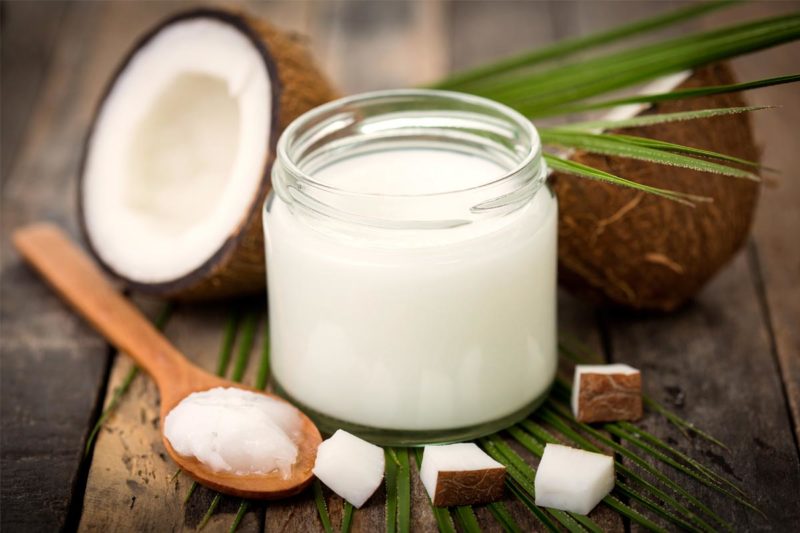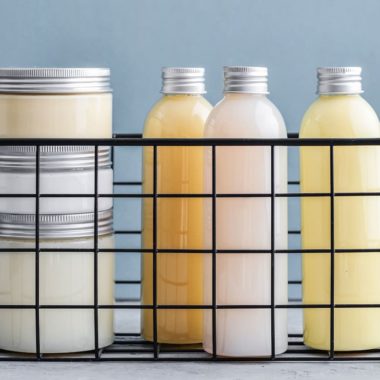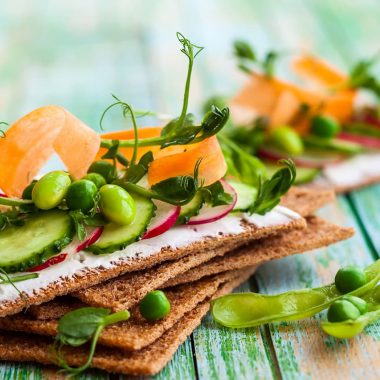Coconut oil can do it all! It has become the star ingredient in natural beauty preparations and healthy cooking. Even if the raw material is of high quality, you have to look at the production processes to find out whether consuming it is environmentally responsible. And unfortunately, as is often the case when a healthy food becomes trendy, you can be unpleasantly surprised…
Is coconut oil really all good?
A few years back we were marvelling at the newfound benefits of shea, but coconut oil has since become the star ingredient in a healthy diet and minimalist, natural beauty preparations.
Because it is said to be a remedy for almost everything, not only in bodycare but also in the diet and household. It takes the place of all the moisturising balms and fluids to replenish the skin thanks to its potency as an emollient and softener. It also allows you to make mouthwash that’s good for dental and oral health according to the principle of oil pulling, an Indian mouthwash technique. It can also be used as a hair mask (for split ends), on the nails and cuticles (to soften them) and as make-up remover. Lastly, it is said to relieve burns, sunburn, insect bites, eczema, acne, etc. Basically it’s a little gem when it comes to personal care and… household upkeep. You can treat leather and polish wood with coconut oil.
In the diet, coconut oil takes the place of other plant-based oils and is said to have positive effects on the arteries and heart. However, its high saturated fat content (some 92%) makes its health benefits questionable, and explains why heating it before consumption is to be avoided.
Consumer product firms have also started wanting to switch out (much-decried) palm oil in favour of coconut oil. However, the latter also poses lots of similar environmental problems… As always happens when a natural product gets hyped up and becomes the latest trendy foodstuff. As in the case of avocado, intensive farming to meet demand is triggering an environmental and social catastrophe.
Coconut oil – not eco-friendly

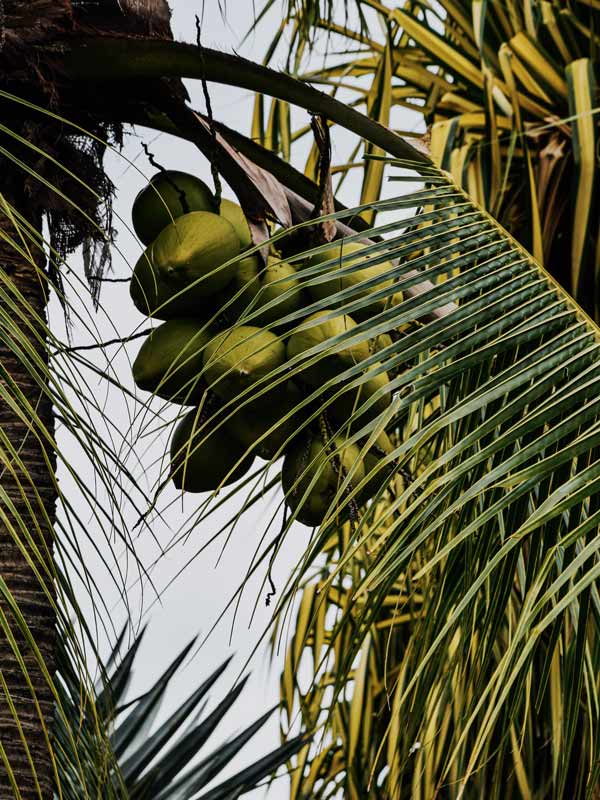
First of all, we are talking about coconut oil here, and not coconut milk or coconut water. Coconut oil is marketed as a natural alternative to almost anything. Only in fact, consumers and influencers singing the praises of a healthy, eco-friendly life “forget” that this product is never sourced locally. The coconut has a large carbon footprint since it’s grown on the other side of the world, and that’s where the problem lies. The main coconut-producing countries are in south-east Asia (Indonesia, the Philippines), French Polynesia and India. The main importing countries being the USA and Europe, it’s safe to say that coconut oil will have generated a lot of greenhouse gas (CO2) emissions on its way to the consumer.
The second major drawback: with exponential growth in demand, producers are incentivised to produce more and more, and do so via intensive monoculture. This method depletes the soil, and to keep operations profitable, calls for the use of pesticides. These toxic products cause immediate soil pollution and trigger destruction of biodiversity in the area. And this type of farming is sometimes encouraged by local governments to upgrade plantations of mature coconut palms with declining yields. This does not prevent the produce from being certified as fairtrade. In addition, these crops require irrigation, in regions where the local populations sometimes suffer water shortages. The farms’ environmental impact has been detrimental to nature and people for some years now.
Coconut oil versus palm oil
Dressed up like this with a reputation that’s all about “health” and “nature”, coconut oil is often recommended as a replacement for the bad guy that is palm oil, which we now associate with deforestation and the image of orangutans getting burned up along with the forest.
While it’s true that palm oil is disastrous for the environment and has zero health benefits, it is found in a lot of mass-produced products due to its low cost. But coconut oil is not so far behind in terms of environmental offences. Both oil palms and coconut palms need vast expanses of land to grow. They take the place of forests and all that lives in them. Unfortunately, the areas where palm oil is produced are also the most fertile and those with the most precious biodiversity, and they are now getting sacrificed. Coconut palm plantations in the Philippines and Indonesia are said to have an even bigger detrimental impact on biodiversity than palm oil plantations. This practice wipes out some endemic species, and is now threatening many more that are native to the regions where coconut palms are grown. It is surely only a matter of time before the immaculate reputation de coconut oil gets sullied like that of palm oil. Coconut oil production is not (yet) as catastrophic for the environment as palm oil, not least thanks to the ability of coconut palms to grow almost anywhere, even in sandy soil, which keeps deforestation minimal. However, it’s up to us to make it more virtuous.
Coconut oil – ethical, social and animal aspects
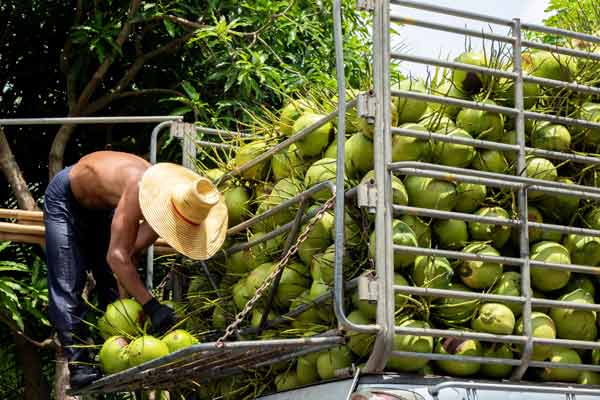
Another dire consequence of the rising demand for coconut oil: production via monoculture is promoted by consumer product firms, who pull out of smallholdings in favour of (sometimes mechanised) plantations. Family plantations get sidelined, smallholdings vanish and local populations get none of the benefit of this upswing in activity. Worse still, small-scale farmers no longer have the option of being independent, and are subservient to large-scale producers who pay them a pittance. We’re talking 1 dollar per day on average, for most of them. So ultimately, this Western craze for coconut oil promotes financial insecurity and extreme poverty in what are already vulnerable populations. Worse still, on this almost mafia-like labour market, harvest workers are up against competition… from monkeys! Producers have sunk as low as to catch little monkeys like pigtail macaques and tame them so that they can be trained (under what sort of conditions is unknown, but we can take a guess at their not being great) to climb up the coconut palms and pick coconuts. Faster than human workers, as biddable as can be and with no wages to be paid. This is animal exploitation of the highest order. The little exploited monkey is separated from its community, most likely tamed in cruel ways and used as a tool whose yield must be ever growing. Reduced to slavery, it spends its days chained up without a hope of ever doing anything other than what it is made to do. According to PETA (People for the Ethical Treatment of Animals), the monkeys are trained to be able to gather up to 1,000 coconuts per day!
While this practice is obviously one to be condemned, the whole system is in need of an overhaul. Because far from being wealthy, the farmers are under the oppression of ever-growing demand. It must be met at the lowest cost, via a dysfunctional market whereby competition forces them to accept a price that they cannot set, so that the consumer (we) can buy coconut oil at low prices, too.
Make better coconut oil choices
You can buy coconut oil with fairtrade or even organic certification, even though it is very hard to come by. But it’s primarily by paying more and scrutinising labels that you can try to weed out the cheap products that come straight from the exploitation of workers in plantations. It’s also possible to buy it in bulk from an ethically-sound shop that will have checked where it comes from, and if possible checked whether the supply chains are sustainable. Opt for a pure oil, and avoid mass-produced products labelled “deodorised coconut oil”, “hydrogenated or partially hydrogenated vegetable oils” or “vegetable oils”, which can be blends. Lastly, you can use networks of consumers committed to the environmental cause, and/or vegan groups (the Facebook groups Végétarien, Végétalien and Vegan & Cool based here in France for example). They swap information and publish lists of ethically-sound brands and those that are respectful of the environment which can vouch for production methods and guarantee that monkeys will not be used for harvesting purposes. A few years back, upon finding out about the exploitation of monkeys, some supermarkets in the UK withdrew the offending products from sale, forcing the suppliers to take a stand against this practice and stamp it out.
The Western world absolutely must rethink its consumer behaviour, since like anything that enjoys exponential growth on the other side of the world, coconut oil is becoming a source of problems for nature and populations. When demand goes global, the system can no longer be based on reasonably-dimensioned networks, nor can it be fair. There is not a single intensively-farmed crop that is respectful of the environment, whether it be vanilla, cocoa or avocados. It’s up to companies to take responsibility and check for responsible sourcing. But it is also – and most importantly – up to consumers to insist on ethically-sound products and be prepared to pay slightly higher prices. Because as is the case for fast fashion, when an exotic product or one designed far away is still sold so cheaply, someone else on the other side of the world is paying the price.


